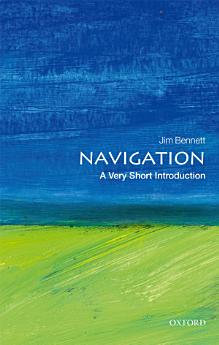Navigation: A Very Short Introduction
ก.พ. 2017 · Oxford University Press
eBook
144
หน้า
family_home
มีสิทธิ์
info
reportคะแนนและรีวิวไม่ได้รับการตรวจสอบยืนยัน ดูข้อมูลเพิ่มเติม
เกี่ยวกับ eBook เล่มนี้
From the Bronze Age mariners of the Mediterranean to contemporary sailors using satellite-based technologies, the history of navigation at sea, the art of finding a position and setting a course, is fascinating. The scientific and technological developments that have enabled accurate measurements of position were central to exploration, trade, and the opening up of new continents, and the resulting journeys taken under their influence have had a profound influence on world history. In this Very Short Introduction Jim Bennett looks at the history of navigation, starting with the distinctive cultures of navigation that are defined geographically - the Mediterranean Sea, and the Pacific, Indian, and Atlantic Oceans. He shows how the adoption of mathematical methods, the use of instruments, the writing of textbooks and the publication of charts all combined to create a more standardised practice. Methods such as longitude-finding by chronometer and lunar distance were complemented by the routine business of recording courses and reckoning position 'by account'. Bennett also introduces the incredible array of instruments relied on by sailors, from astrolabes, sextants, and chronometers, to our more modern radio receivers, electronic equipment, and charts, and highlights the crucial role played by the individual qualities of endeavour and resourcefulness from mathematicians, scientists, and seamen in finding their way at sea. The story of navigation combines the societal, the technical, and the human, and it was vital for shaping the modern world. ABOUT THE SERIES: The Very Short Introductions series from Oxford University Press contains hundreds of titles in almost every subject area. These pocket-sized books are the perfect way to get ahead in a new subject quickly. Our expert authors combine facts, analysis, perspective, new ideas, and enthusiasm to make interesting and challenging topics highly readable.
เกี่ยวกับผู้แต่ง
Jim Bennett is a historian of science who has held curatorial posts in national museums in London and in university museums in Cambridge and Oxford, where he was Director of the Museum of the History of Science. He has been President of the British Society for the History of Science and of the Scientific Instrument Commission of the International Union of History and Philosophy of Science. He is currently President of the Hakluyt Society. His books include The Divided Circle: a History of Instruments for Astronomy, Navigation, and Surveying (Phaidon-Christie's, 1987), and London's Leonardo: the life and work of Robert Hooke (OUP, 2003), with Michael Cooper, Michael Hunter, and Lisa Jardine.
ให้คะแนน eBook นี้
แสดงความเห็นของคุณให้เรารับรู้
ข้อมูลในการอ่าน
สมาร์ทโฟนและแท็บเล็ต
ติดตั้งแอป Google Play Books สำหรับ Android และ iPad/iPhone แอปจะซิงค์โดยอัตโนมัติกับบัญชีของคุณ และช่วยให้คุณอ่านแบบออนไลน์หรือออฟไลน์ได้ทุกที่
แล็ปท็อปและคอมพิวเตอร์
คุณฟังหนังสือเสียงที่ซื้อจาก Google Play โดยใช้เว็บเบราว์เซอร์ในคอมพิวเตอร์ได้
eReader และอุปกรณ์อื่นๆ
หากต้องการอ่านบนอุปกรณ์ e-ink เช่น Kobo eReader คุณจะต้องดาวน์โหลดและโอนไฟล์ไปยังอุปกรณ์ของคุณ โปรดทำตามวิธีการอย่างละเอียดในศูนย์ช่วยเหลือเพื่อโอนไฟล์ไปยัง eReader ที่รองรับ






